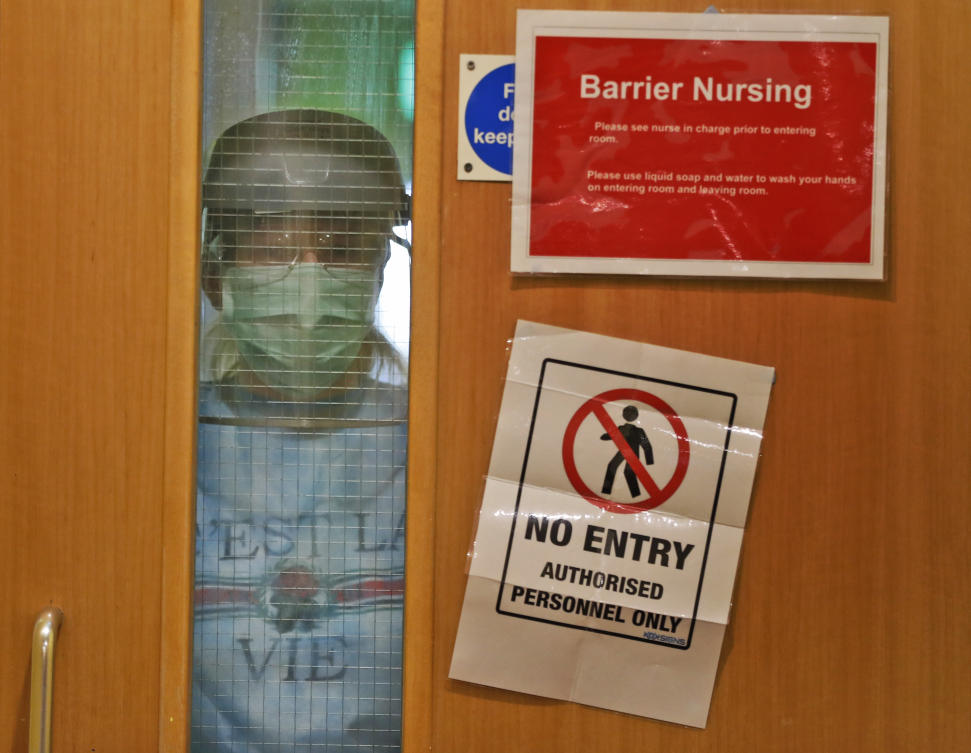LONDON: Britain’s government acted unlawfully early in the COVID-19 pandemic when it moved elderly patients from hospitals to care homes without considering that people without symptoms could spread the virus, a court found on Wednesday.
Britain’s coronavirus death toll soared during early 2020, outstripping its European peers, boosted by the deaths of elderly people, many of whom had been moved out of hospital into residential care to make room for COVID patients.
A judicial review instigated by the families of two care home residents who died of the virus looked at decisions taken in March and April 2020 by then-health secretary Matt Hancock.
The judges found that several of his policies on moving patients from hospitals to care homes had been introduced or retained unlawfully.
They noted that the government’s chief scientific adviser, Patrick Vallance, had spoken in media interviews about the risks of asymptomatic transmission before the policies were published.
“The drafters of those documents failed to take into account the risk to elderly and vulnerable residents from non-symptomatic transmission,” a summary of the judgment said.
The judges also found that it was irrational for the health department not to have advised until April 2020 that patients admitted to a care home should be kept apart from other residents for 14 days, even if they had no COVID symptoms.
The judges said the claimants had sought only a declaration from the court and had not asked for compensation, meaning that the ruling has no direct consequences. The subject is also expected to be covered in a separate public inquiry.
The BBC quoted a spokesperson for Hancock as saying the case “comprehensively clears ministers of any wrongdoing and finds Mr.Hancock acted reasonably on all counts.” Reuters could not immediately reach Hancock for comment.
When criticism of the care home policy came to light later in 2020, Hancock and other ministers insisted that the government had thrown a “protective ring” around care homes.
The Health Department said it acknowledged the judge’s comments and would respond in more detail later.
“The court recognized this was a very difficult decision at the start of the pandemic, evidence on asymptomatic transmission was extremely uncertain, and we had to act immediately,” a spokesperson said.
UK’s transfer of old patients to care homes in pandemic was unlawful — court




